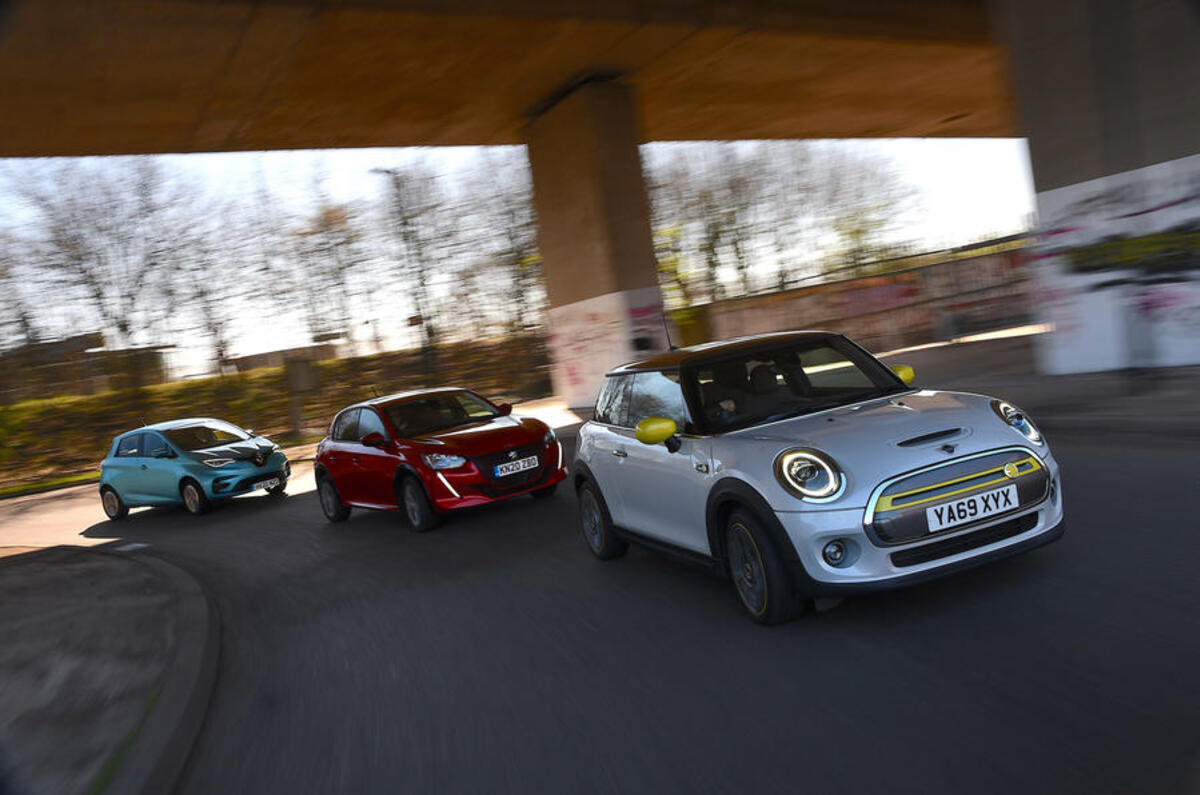The government has slashed the Plug-in Car Grant (PiCG) for buyers of electric vehicles by £1000, while also reducing the number of cars eligible for the scheme.
The grant had previously offered buyers of electric cars 35% off the purchase price up to a maximum of £2500. That maximum has now been cut to £1500. At the same time, the maximum recommended retail price of vehicles eligible for the grant has been reduced from £35,000 to £32,000. The change was first reported by Fleet News.
The PiCG has most recently been available to vehicles with CO2 emissions of less than 50g/km that can travel at least 70 miles on zero-emission power.
This move is reportedly designed to ensure the government funding available for EV grants is spread among the maximum number of car buyers possible, and follows record sales for EVs so far this year. A total of 162,022 full battery-electric vehicles have been sold in the UK to date, up 88.9% year on year and accounting for 10.6% of all cars sold this year.
In a statement to the House of Commons, under-secretary of state for transport Trudy Harrison said: "With demand [for EVs] so strong, it is right that we seek to focus the grants, which are funded by the taxpayer, on the areas where they will have the most impact and where the market still needs government support."
The government initially made £582 million available for the PICG scheme, and added more funding in a spending review last October.
Mikes Hawes, the boss of the Society of Motor Manufacturers and Traders, described the move as "a blow to customers looking to make the switch and couldn’t come at a worse time, with inflation at a ten-year high and pandemic-related economic uncertainty looming large."
He added: “Industry and government ambition for decarbonised road transport is high, and manufacturers are delivering ever more products with ever better performance. But we need to move the market even faster – from one in a hundred cars on the road being electric, to potentially one in three in just eight years – which means we should be doubling down on incentives. Other global markets are already doing so whereas we are cutting, expecting the industry to subsidise the transition, and putting up prices for customers. UK drivers risk being left behind on the transition to zero-emission motoring.”
Wheelchair accessible vehicles will still be eligible for a grant of £2500 for vehicles priced under £35,000. Small and large vans will be eligible for grants of up to £2500 and £5000 respectively, with businesses limited to a maximum of 1000 grants per financial year. The grants for small and large trucks (£16,000 and £25,000) remain unchanged.
This is the third time in the past two years the PiCG has been cut. The grant was reduced from £3500 to £3000, with a £50,000 cap on maximum vehicle prices in the 2020 Budget. It was then further reduced to £2500, with the maximum vehicle RRP slashed to £35,000, in March this year.
Harrison also announced plans to continue investing in EV charging infrastructure, including a new 'minimum payment method' - likely allowing contactless payment - for all new 7.1kw and faster chargers.








Join the debate
Add your comment
I have no problem with this as the automakers were merely inflating their prices by the amount of the grant and trousering the money. Government should be concentrating on making sure the charging infrastructure is fit for purpose which, at the moment, it clearly isn't.
Once again, the well off who can get a car completely tax free through work (which is driving the current EV uptake) will continue benefitting while the pleb who have to buy them are being priced out.
When the threshold was reduced to £35,000 earlier this year manufacturers suddenly found they were able to re-jig their line ups to make more models fall under it, so I'm sure something similar will happen this time. I was amazed how quickly and easily they could do this.